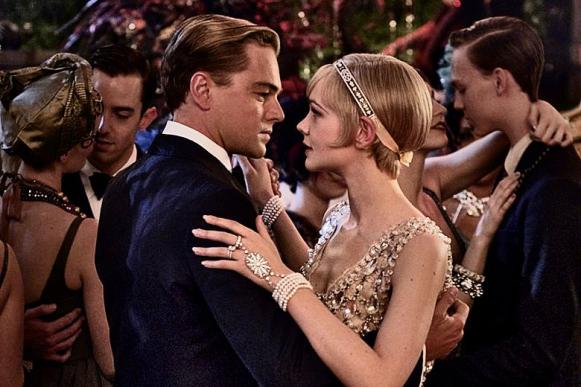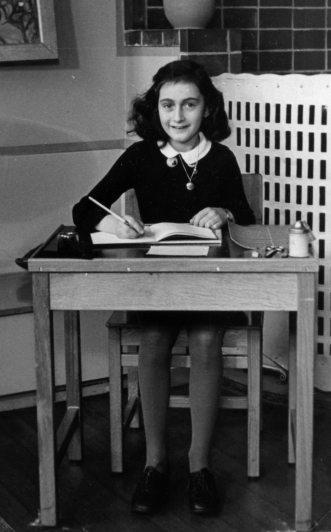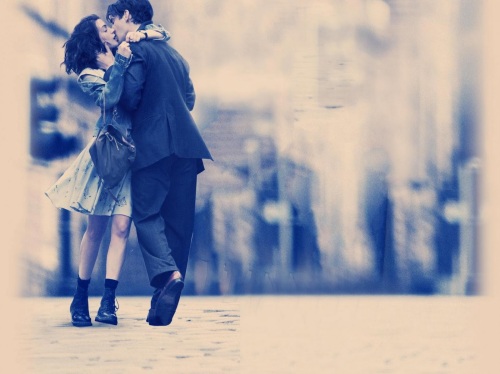In keeping with the date I have decided to dedicate this post to my favourite book of all time. I can hardly contain my excitement in getting to talk about The Great Gatsby yet again. I’ve got to say that it was a pretty close battle between The Great Gatsby and Gone Girl but I feel that Gatsby has more of a lasting impact. I can still quote it despite it being years since I last read it (though it is one of the only books I’ve ever read multiple times) and it’s hands down better written – Sorry Flynn!

The Plot: The Great Gatsby is set in New York in the roaring 20s. It’s the era of prohibition but no one obeys the rules. There’s excessive drinking, the most extravagant parties you can possibly imagine and an element of dream-like romance to tie it all up.
The Characters: Let me begin with the almost completely aloof narrator. We never know a great deal about Nick Caraway, nor do we care. The story isn’t really about him, it’s about his observations. He’s a bystander, a fly on the wall if you will, taking note of all the drama that seems to just twirl in the air around these glamorous New Yorkers.
Then there’s Gatsby himself. He’s a man on money and a man of passion. Utterly smitten with Daisy he’s equally in love with his dreams. His persona is charming and you can’t help but feel empathy for any man who strives for something so hard.
Daisy herself is a pretty young flower, pure and sweet and innocent. I can’t help but equally fall in love with her spirit. She may seem flakey but I have a feeling she’s acting the part set out for her by society. After all, she makes the insightful comment concerning her daughter, “I hope she’ll be a fool — that’s the best thing a girl can be in this world, a beautiful little fool.”
Last but not least is Daisy’s husband Tom Buchanan. Playing the part of dominant husband and pro sportsman Tom at first appears to be the perfect husband. However, there is a darker side to him and as Shakespeare said ‘the course of true love never did run smooth’…
Language: This book is so full of passion. Perhaps it’s the affect of the American Dream but everything in this novel reads as if through rose tinted glasses. “The exhilarating ripple of her voice was a wild tonic in the rain.” Lines like this make me truly believe in the beauty of life. This brings me on to my fourth a final section, the quotes, (which is really just me emphasising how much I adore Fitzgerald’s writing).
Quotes: “So we beat on, boats against the current, borne back ceaselessly into the past..”
“In his blue gardens men and girls came and went like moths among the whisperings and the champagne and the stars.”
“Then he kissed her. At his lips’ touch she blossomed for him like a flower and the incarnation was complete.”
“There must have been moments even that afternoon when Daisy tumbled short of his dreams — not through her own fault, but because of the colossal vitality of his illusion. It had gone beyond her, beyond everything. He had thrown himself into it with a creative passion, adding to it all the time, decking it out with every bright feather that drifted his way. No amount of fire or freshness can challenge what a man will store up in his ghostly heart.”
“So he waited, listening for a moment longer to the tuning-fork that had been struck upon a star.”
“It was all very careless and confused. They were careless people, Tom and Daisy—they smashed up things and creatures and then retreated back into their money or their vast carelessness, or whatever it was that kept them together, and let other people clean up the mess they had made.”
“Life starts all over again when it gets crisp in the fall.”
I simply cannot get over the beauty of these words. I am in awe of F Scott Fitzgerald’s talent and I hope and I dream that one day just maybe I might be at least semi capable of creating poetic prose like his.













